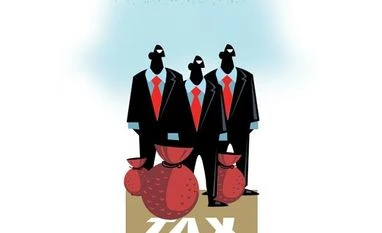Top Section
Explore Business Standard
Top Section
Explore Business Standard
Don’t miss the latest developments in business and finance.
Johnson and Johnson, GE and Toshiba recently announced split into multiple entities. Do the demands of an emerging market like India require a different approach? Let's find an answer to this question
)
Conglomerates, and the demerits of being one, are once again in the news. This month, General Electric broke up into three public companies. Experts suggest the development was long overdue. General Electric’s revenue for 2020 was $79.62 billion, a far cry from the $180 billion-plus revenue it booked in 2008. In India too, Vedanta took a similar call of restructuring.
Market imperatives obviously drive such decisions. Which is why conglomerates have come to be regarded as dinosaurs in the western world, a relic of a bygone business climate that favoured such company structures. Diversification into multiple businesses was once considered to be an effective way to mitigate risk. The logic was that when one industry was in a downturn, another might be thriving. However, this strategy doesn't have many buyers today, at least not in the West anyway.
But as former Business Standard editor Shyamal Majumdar pointed out in his latest column, conglomerates continue to remain relevant in emerging markets such as India. Majumdar highlighted two important reasons. First, there are too many dwarf companies that fail to make an impact because of scalability issues. And second, diversified business groups have the advantage of low-cost capital, as money earned from performing businesses can be invested in new businesses, which have the potential to become hugely profitable over the long term.
While on the flip side, even among Indian firms, there is the view that moving away from the conglomerate structure could actually unlock great value. That is what Anil Agarwal-led Vedanta is counting on.
About the plan to break up the conglomerate, Vedanta chairman Agarwal said, “This step, whilst pending a detailed evaluation, is designed to create independent, industry-leading, global public companies, where each can benefit from greater focus, tailored capital allocation, and strategic flexibility to drive long-term growth and value for customers, investors, and employees.”
Similarly, a Bain and Company study on conglomerates in India and Southeast Asia suggests that the advantages traditionally associated with conglomerates don't seem to hold true anymore. The report says that these large firms have begun to underperform in revenue growth and margin improvement.
There is another line of argument in favour of conglomerates. Former planning commission member Arun Maira believes that
with the right management capabilities in place, conglomerates could enjoy certain advantages in the long run. Although, they might not necessarily be financial or operational in nature.
It will be interesting to see whether well-known Indian groups, such as the likes of the Tatas and the Birlas, will re-examine their organisational structures. While experts in the West might have reached their conclusions, clearly, the debate for and against conglomerates still continues in India at least.
First Published: Nov 24 2021 | 8:15 AM IST